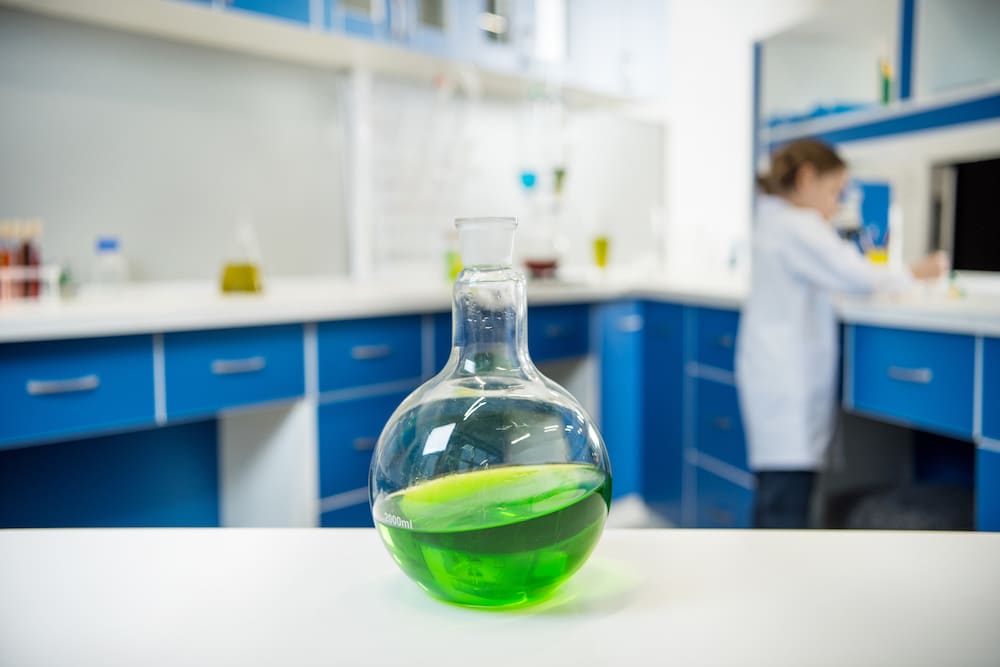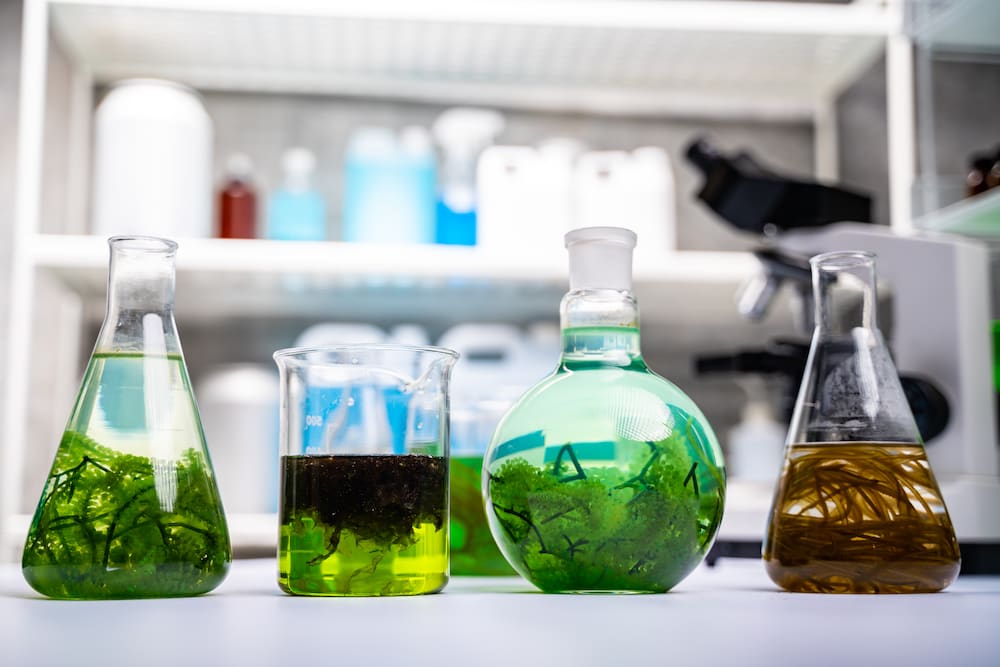- Published 5 Mar 2024
- Last Modified 5 Mar 2024
- 5 min
Chemical Handling with Precision: A Guide to Measuring Cylinders
Explore our guide to measuring cylinders for precision measurement and chemical handling, and get quality laboratory glassware from RS Malaysia.

In the heart of Malaysia's burgeoning chemical manufacturing industry, the precision and accuracy of lab equipment like measuring cylinders are indispensable. As Malaysia aims to boost the chemical sector's gross value add (GVA) to the overall economy to 4.5% by 2030, the demand for high-quality laboratory supplies looks set to increase. These instruments are pivotal in ensuring the meticulous handling and measurement of chemicals, contributing significantly to the industry's growth and efficiency.

The Function of Measuring Cylinders
Measuring cylinders are fundamental pieces of laboratory glassware used across various industries for precise liquid measurement. Essential in fields ranging from pharmaceuticals and food & beverage to petrochemicals and scientific research laboratories, these cylinders facilitate accurate volume assessments critical to successful outcomes.
Measuring cylinders not only allow for the meticulous preparation of solutions and reagents but also ensures the consistency and repeatability of experiments and production processes. They are integral in dilution processes and the accurate addition of liquid components, playing a key role in the synthesis of new compounds and the quality assurance of consumer products.
Types of Measuring Cylinder Sizes and Capacities

Measuring cylinders are essential lab equipment integral to the precision and accuracy required in scientific and industrial applications. These precision measurement instruments are available in an extensive range of sizes to suit various needs. Sizes range from as small as 5ml, ideal for highly precise tasks, to upwards of 2000ml for applications necessitating the handling of larger volumes.
The smaller sizes, such as 5ml, 10ml, and 25ml, are particularly valued in environments where exact measurements are crucial. These include measuring reagents for chemical reactions or preparing small-scale formulations in pharmaceutical development. These diminutive cylinders enable scientists and technicians to add precise amounts of liquid to their mixtures, ensuring the correct concentration of solutions and the success of their experiments or product formulations.
Conversely, the larger measuring cylinders, which include 500ml, 1000ml, and even 2000ml capacities, find their place in settings that deal with the preparation of solutions or mixtures in bulk. Industries such as petrochemical manufacturing, food and beverage production, and large-scale research laboratories rely on these sizes for less precision-sensitive yet volume-intensive tasks.
Types of Measuring Cylinder Materials
Besides sizes, the material of a measuring cylinder will also influence its application. Polypropylene (PP), Polymethylene (PMP), and glass are the most common choices for chemical measuring instruments. PP and PMP are favoured for their chemical resistance and durability, ideal for handling a broad spectrum of substances and conditions where robustness is key. These materials are particularly suited for measuring instruments in environments where the risk of breakage and chemical exposure is high, offering a safer and more durable alternative to glass.
Glass cylinders are valued for their precision and clarity, indispensable in scenarios requiring exact volumetric measurements. They are resistant to heat and corrosive substances, making them ideal for sensitive chemical reactions and quality control processes.
How to Get Clear, Accurate Readings with Measuring Cylinders
To get a consistently accurate reading from a measuring cylinder every time, follow these steps:
- Place the cylinder on a flat surface and bring your eye level with the liquid's meniscus (the curve formed by the liquid).
- Read the measurement at the bottom of the meniscus.
- Opt for cylinders with clear, easily readable graduations and high transparency for the best results.
Get High-quality Measuring Cylinders from RS Malaysia
Measuring cylinders are essential lab equipment in the precise handling of chemicals, crucial for Malaysia's ambition to become a leader in the Asia Pacific chemical industry. Often overlooked, these pivotal instruments play a critical role in maintaining the consistency, safety, and quality of chemical processes, making them invaluable assets that significantly streamline workflow and enhance operational efficiency.
For businesses looking to equip their laboratory with reliable equipment, glassware and supplies, RS Malaysia offers a trusted source of quality precision measurement tools. From plastic measuring cylinders to glass, our collection features a wide range of sizes for various applications.
For other essential laboratory equipment, check out our guide on buying microscopes.
Popular Measuring Cylinder Brands
Hanna Instruments
Hanna Instruments offers precision-engineered measuring cylinders, known for their accuracy and reliability in various laboratory and field settings.